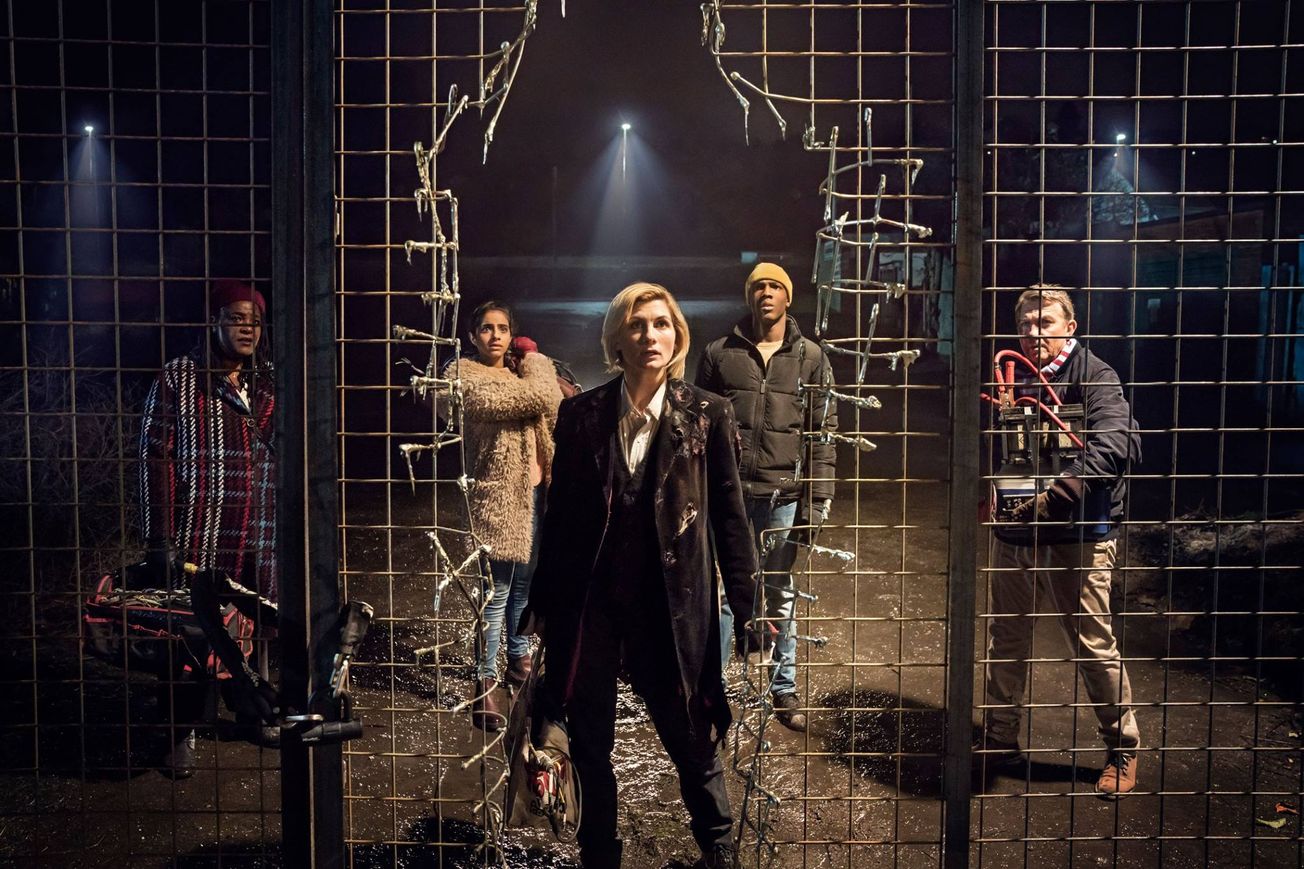By Theo Antonov, Second Year English
Doctor Who is a poisoned chalice. A show with over fifty years of airtime, the pressure of the burden of creating an episode that is creative yet familiar grows ever larger. Whatever direction the show is taken in, there are a legion of fans or ‘Whovians’ critiquing and commenting with great vigour.
Chris Chibnall, the latest person to take up the mantle of show-runner, delivered a by-the-books opening episode to the eleventh series of Modern Who. Other reviewers claim that Chibnall was quick to depart from the course of past Who, but it was quite the contrary.
Youtube / Doctor Who
The Doctor (Jodie Whittaker) saves a town from a cleverly conceived but poorly executed villain (Samual Oatley), accompanied by walking exposition devices aka the companions. If one were to describe the narrative arc of a generic Doctor Who episode, ‘The Woman Who Fell to Earth’ would fulfil the criteria for it.
The star of the show was undoubtedly Whittaker. All who questioned whether a woman could play the role of The Doctor were most likely left silent after Sunday’s episode. Jodie Whittaker is The Doctor, there is no denying it. She brought back the fun and flair of the character which was much needed as the allure of Doctor Who has always been that it’s a quaint camp British sci-fi flick.
Jodie Whittaker has come to save the universe. pic.twitter.com/J5otd3K8qq
— edgarwright (@edgarwright) 7 October 2018
Twitter / @EdgarWright
The episode was most engaging when Whittaker was allowed to shine in her role. The construction of the new Sonic Screwdriver (or a 'sonic Swiss army knife, except without the knife, as only idiots carry knives') was riveting.
An absolute delight was the reinvention of the title theme by Segun Akinola in the closing credits. Mysterious and visceral, it was a master stroke to re-incorporate elements from the 1963 arrangement, whilst providing original quirks to create the effect of symbiosis between tradition and creativity. It was a disappointment not to hear this new arrangement in any opening credits, as the episode lacked them, although they shall be returning in time for episode 2.
The new Doctor Who theme sounds amazing. Sounds very much like the original 63 version with added drumbeats. Love how the composer actually uses parts of the original theme. https://t.co/dJGISIQBCM #doctorwho
— Grant Williams (@grant_williams) 7 October 2018
Twitter / @grant_williams
The visual effects were seemingly impressive, although the villain was not the best delivered of concepts. The initial idea of a warrior sent to murder with no weaponry is a clever one, but it was a shame that other decisions such the continued reliance on a man in an alien suit continue to plague the villains of Doctor Who.
It was a welcome announcement to hear a main companion, Ryan (Tosin Cole), would have dyspraxia, as relatively few disabilities are shown well, if at all, on screen. This episode seemed to imply that his identity would be defined by his disability, which of course is never the case. I hope in future episodes they show the character going beyond his condition, excelling and showing that anyone is welcome in the TARDIS.
I have dyspraxia. I was diagnosed with it pretty early and went through all my schools with teachers not understanding it or claiming that dyspraxia wasn’t actually a disability. Pretty amazing to see it portrayed in Doctor Who.
— Eddie Argos (@EddieArgos) 7 October 2018
Twitter / @EddieArgos
And speaking of the TARDIS, it was a huge disappointment not to see it! It was certainly unusual for The Doctor not to introduce their companions, and the viewer, to their fantastical world of time and space using the device that traverses it.
Although in the grand scheme of things this was an average episode of Doctor Who, it’s whetted my appetite to see more from Whittaker’s Doctor. Chibnall would do well to find his own style of Doctor Who that encompasses tradition, yet goes forth in a new creative direction, and he should find it quickly. Whovians do not settle for mediocrity for long.
Whittaker has the potential to be an exceptionally fantastic Doctor; the question is whether the writing will allow her to excel.
Youtube / Doctor Who
Featured Image: Facebook / Doctor Who
Will you be watching the rest of Jodie Whittaker's first series as The Doctor?
Facebook // Epigram Film & TV // Twitter









